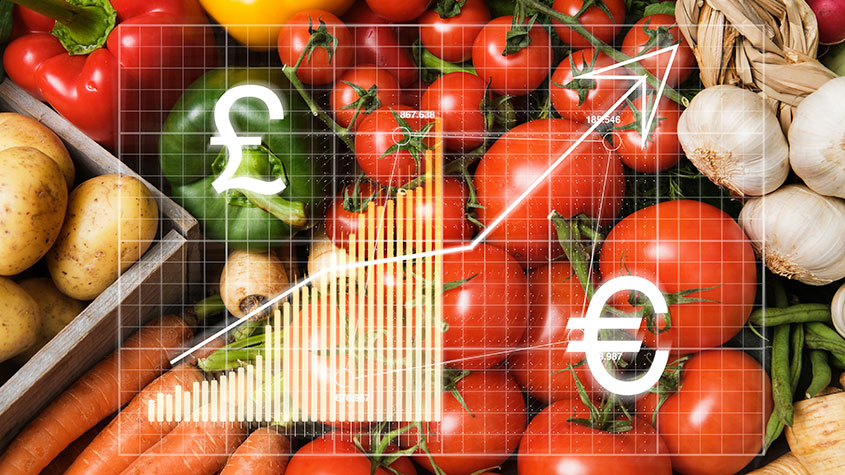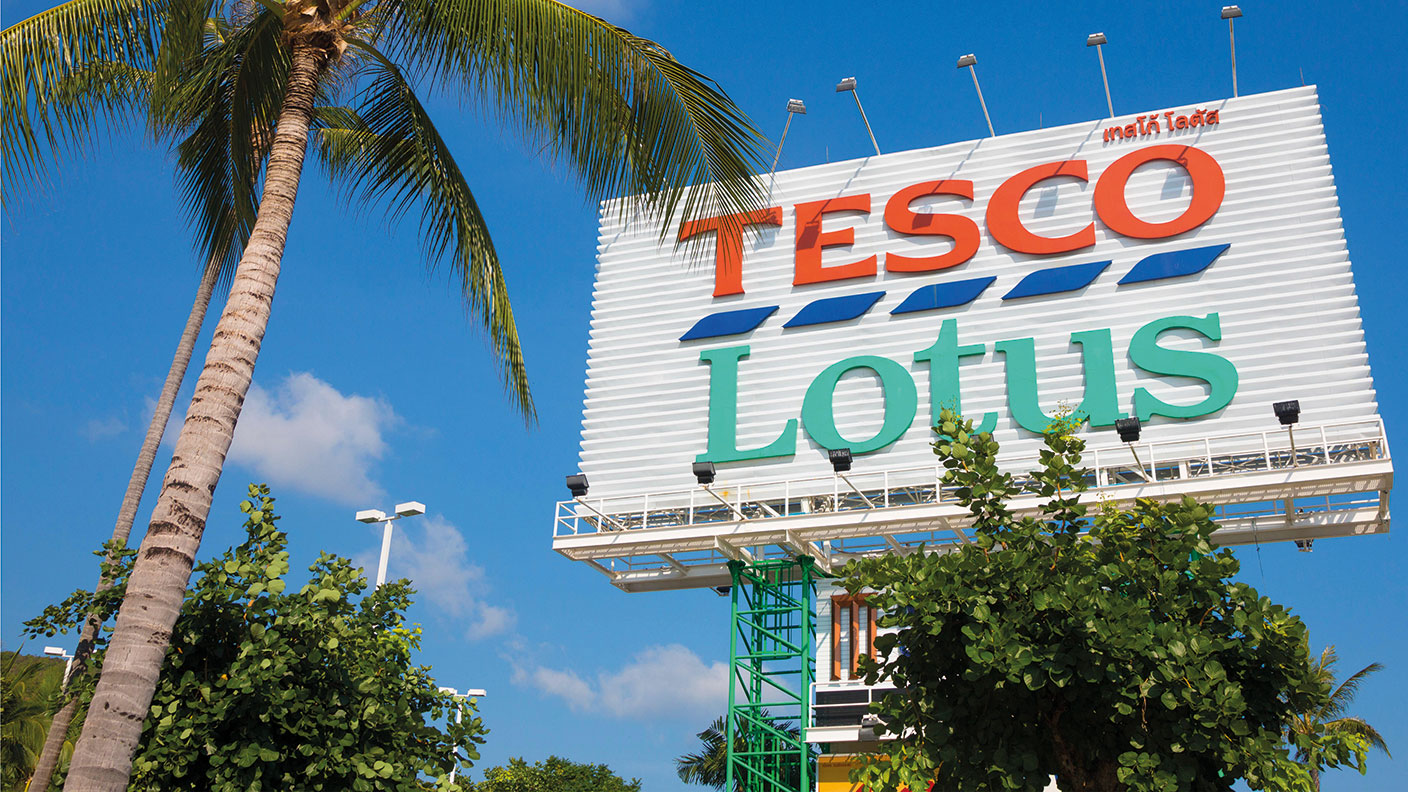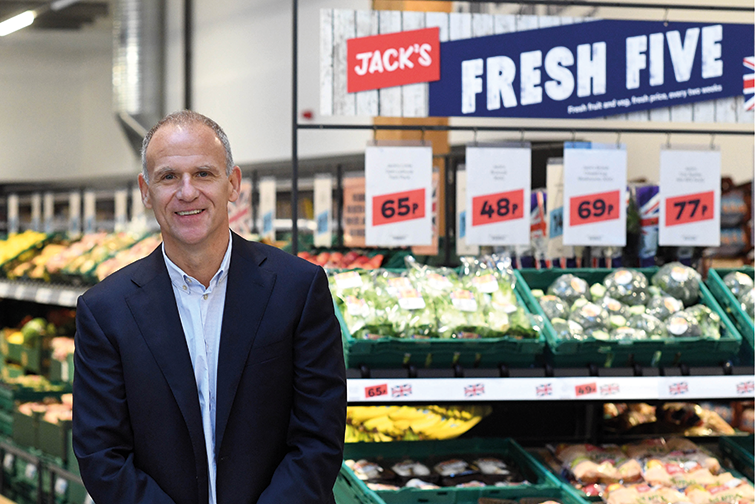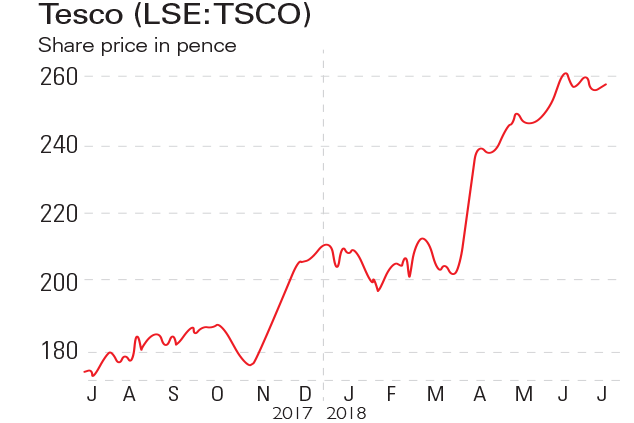Get the latest financial news, insights and expert analysis from our award-winning MoneyWeek team, to help you understand what really matters when it comes to your finances.
You are now subscribed
Your newsletter sign-up was successful
Want to add more newsletters?

Twice daily
MoneyWeek
Get the latest financial news, insights and expert analysis from our award-winning MoneyWeek team, to help you understand what really matters when it comes to your finances.

Four times a week
Look After My Bills
Sign up to our free money-saving newsletter, filled with the latest news and expert advice to help you find the best tips and deals for managing your bills. Start saving today!
Tesco is getting a good deal with its bid for wholesaler Booker. But regulators could yet block the merger, says Ben Judge.
Last week, Tesco surprised investors with a £3.7bn bid for Booker, which is Britain's biggest wholesale food distributor and also owns the Makro cash-and-carry and the Budgens and Londis chains of shops. The deal represents "a massive bet on post-Brexit Britain and the UK consumer" by Tesco, says Allister Heath in the Daily Telegraph.
Tesco has retrenched from unprofitable overseas ventures and is reshoring "vast amounts of cash" in a bid to become the "undisputed king" of the UK consumer market. By buying Booker, it could rationalise its operations, "freeing up unwanted property that could be turned into housing", while transforming Booker's systems, and increasing productivity.
MoneyWeek
Subscribe to MoneyWeek today and get your first six magazine issues absolutely FREE

Sign up to Money Morning
Don't miss the latest investment and personal finances news, market analysis, plus money-saving tips with our free twice-daily newsletter
Don't miss the latest investment and personal finances news, market analysis, plus money-saving tips with our free twice-daily newsletter
Buying Booker is a "defensive but logical move" for Tesco, says the Financial Times' Lex column. Booker is a better business than Tesco. Its operating margins are almost twice as big and it "converts a greater proportion of that profit into cash". So the price that Tesco is paying looks reasonable the £175m of annual savings will "easily cover the premium being paid".
Quite, says Stephen Wilmot in The Wall Street Journal. That's why the deal is much sweeter for Tesco than for Booker's shareholders. In the past ten years, Booker turned £100 of investor cash into over £2,300. Tesco turned £100 into £67. "When you own a great company you deserve a great takeover premium." The mere 12% premium that Tesco is paying for Booker "looks too slim".
Nor is it obvious what Tesco adds to Booker's business, says Wilmot. Booker had organic growth of 5.1% excluding cigarette sales last quarter. Tesco had a meagre 1.5%. And as a supplier to caterers and restaurants, Booker benefits from the rising trend for eating out; supermarkets don't. You can argue Booker gets access to Tesco's purchasing power, but this is "where the risks lie", as competition authorities circle.
The Competition and Markets Authority (CMA), which regulates mergers in the UK, will almost certainly take an interest given Tesco's "already substantial negotiating power with its suppliers" and the fact that it "owns a range of convenience stores that compete with Booker's customers".
The CMA should wave the deal through, says Heath. Tesco will be able to harness its buying power to supply wholesale products to small retailers at lower prices, supply Booker's franchises with the tools to make them more efficient and offer better prices to customers. The outcome will be to "enhance competition and efficiency".
Not likely, says Matthew Vincent in the Financial Times. Yes, supply chains and logistics will be merged, but overall "the value of the strategy is questionable". All Tesco is getting from this deal is "the ability to squeeze suppliers a little bit harder".
Get the latest financial news, insights and expert analysis from our award-winning MoneyWeek team, to help you understand what really matters when it comes to your finances.

-
 Average UK house price reaches £300,000 for first time, Halifax says
Average UK house price reaches £300,000 for first time, Halifax saysWhile the average house price has topped £300k, regional disparities still remain, Halifax finds.
-
 Barings Emerging Europe trust bounces back from Russia woes
Barings Emerging Europe trust bounces back from Russia woesBarings Emerging Europe trust has added the Middle East and Africa to its mandate, delivering a strong recovery, says Max King
-
 How to profit from rising food prices: which stocks should you invest in?
How to profit from rising food prices: which stocks should you invest in?Tips Food prices are rising – we look at the stocks to avoid and the one to invest in this sector.
-
 Tesco looks well-placed to ride out the cost of living crisis – investors take note
Tesco looks well-placed to ride out the cost of living crisis – investors take noteAnalysis Surging inflation is bad news for retailers. But supermarket giant Tesco looks better placed to cope than most, says Rupert Hargreaves.
-
 Tesco sells its retail subsidiary in Thailand and Malaysia for £8bn
Tesco sells its retail subsidiary in Thailand and Malaysia for £8bnNews Tesco has agreed to sell its southeast Asian operations to Thai conglomerate Charoen Pokphand for £8.2bn in cash.
-
 Tesco should keep its Asian assets
Tesco should keep its Asian assetsOpinion The £7bn that Tesco could get for its Tesco Lotus business in Asia looks enticing. But holding on to it would be smarter, says Matthew Lynn.
-
 Tesco wields the axe
Tesco wields the axeFeatures Britain’s biggest supermarket is cutting back on staff and fresh food. Will the move prove counterproductive? Matthew Partridge reports.
-
 If you'd invested in: Tesco and Associated British Foods
If you'd invested in: Tesco and Associated British FoodsFeatures Tesco has seen its market value rise almost 50% in a year, while AB Foods has seen shares slide despite a rise in profits.
-
 What's behind Tesco’s alliance with Carrefour?
What's behind Tesco’s alliance with Carrefour?Features Tesco is clubbing together with French rival Carrefour to bulk buy own-label goods in an effort to cut costs. Will it succeed? Ben Judge reports.
-
 Lessons from Tesco’s turnaround
Lessons from Tesco’s turnaroundOpinion Retailers have it tough, but Tesco has shown that it’s still possible to thrive, says Matthew Lynn.
